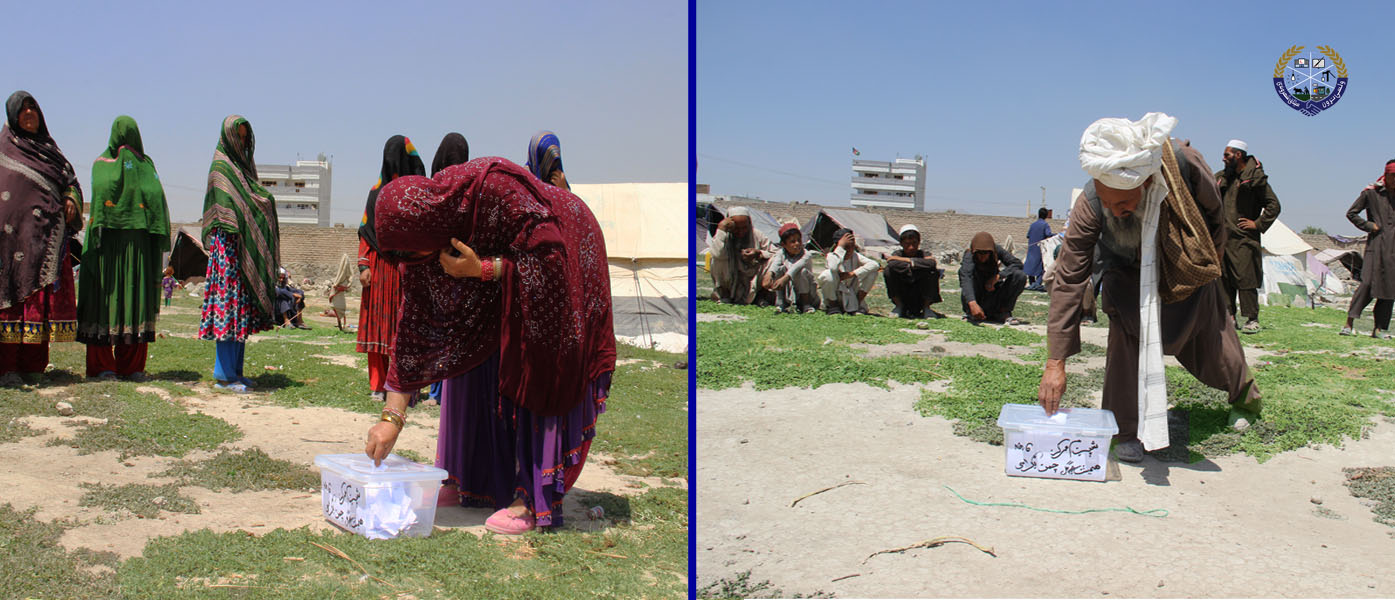 The Citizens Charter National Priority Program (CCNPP) promotes inclusive development and accountability at all levels. It gives a voice to all vulnerable groups including the women, youth, returnees, displaced populations, people with disabilities, the poor and other marginalized groups. Its aim is to end fragmentation, enhance social capital, unity and reduce poverty by providing basic services for the citizens based on their own priorities. The Citizens Charter National Priority Program (CCNPP) promotes inclusive development and accountability at all levels. It gives a voice to all vulnerable groups including the women, youth, returnees, displaced populations, people with disabilities, the poor and other marginalized groups. Its aim is to end fragmentation, enhance social capital, unity and reduce poverty by providing basic services for the citizens based on their own priorities.
The nomadic (Kuchies) population has been one of the marginalized and vulnerable groups in the country and little attention has been paid to their development. This sense of displeasure and lack of attention to their development priorities in turn, created barriers to their access to quality services and their participation in development programs.
The Kuchies development program under CCNPP at MRRD is designed to establish 902 Community Development Councils (Elbands) across Afghanistan for Kuchis through transparent and democratic elections to facilitate and lead services’ delivery process and make sure that any category of Kuchies communities is included and benefited by the Citizens’ Charter over
the next four years (2018-2022). Any Kuchie CDC (Eland) must conduct elections to select men and women (where feasible) as representatives that is a pre-requisite to obtain Citizens’ Charter support and funding.
Based on MRRD Kuchies Development Strategy that is compiled as a result of the pilot projects on the ground, each Kuchi CDC (Elband) will be covered through CCNPP list of services in the rural areas, which include: Water supply (water supply network, water reservoir for drinking water, mobile water filtration system, small water reservoir for feeding livestock), Power/renewable energy (mini-grid for semi-settled Kuchies, micro hydro power for semi-settled Kuchies, solar panel, biogas system), and Transport (encouraged as joint project).
It is worth mentioning that to design the Kuchies Development Program, the CCNPP conducted a series of consultation and orientation sessions with Kuchies representatives in Kabul in 2017. These consultation meetings were followed by design of a pilot project in 2018 on establishment of special Kuchies Community Development Councils in Zabul, Paktia, Jawzjan and Kapisa provinces to identify the living condition, movement, routes and corridors where the Kuchies move during different seasons of the year. Based on the findings of both the consultation meetings and the pilot project data and findings a comprehensive framework for mobile and semi-settled Kuchies communities was developed which was then compiled into Kuchies Development Strategy which defines how CCNPP covers Kuchies communities through its development projects in Afghanistan.
Achievements so far:
761 KCDCs Established
726 Project Proposals Developed
240 projects received financing
124 projects are ongoing that is expected to create 92574 labor days
|